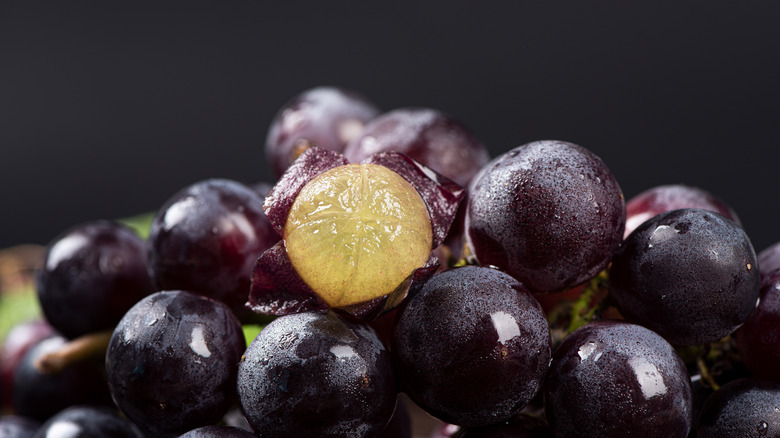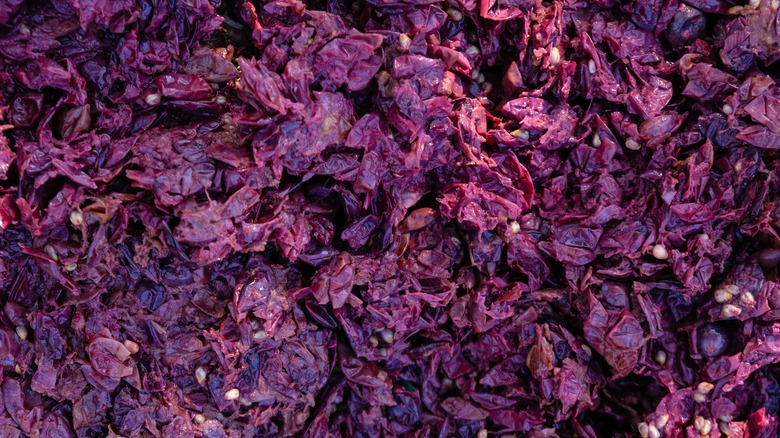Why You Should Stop Peeling Grapes
Some fruits are meant to be peeled. They need to be separated from their skins so that they may be thoroughly enjoyed. Bananas are synonymous with peeling, pineapples basically have scales, and don't even get started with the armored tank that is the durian. But grapes? Now why would you go and do such a silly thing?
Grapes as a whole are undeniably delicious and actually very nutritious. According to Healthline, grapes are a fantastic source of minerals and nutrients, particularly vitamin K, which aids in blood clotting and makes healthy bones, and copper, which the body needs to be able to produce energy. They can even be made into a whole variety of other products like juice, raisins, and wine, but many of these things would not be possible without the skins. The deep colors of red wines and the signature wrinkles in the raisin are all ruined once the skin of a grape has been stripped away.
Show more than a little bit of skin
According to Taste of Home, the colors and textures aren't the only things that you're stripping when you're peeling a grape — you're also getting rid of the part of the grape with the highest levels of antioxidants and other nutrients. The flesh of the grape is largely water and sugar, but it's the skins that harbor all of that healthy nutritional goodness.
Grape skins have also been reported to contain high levels of resveratrol, per Medical News Today, which is an antioxidant that studies say can help the body to inhibit or slow the growth of tumors. Resveratrol is also present in wines (both red and white), but the combination of other nutrients and fiber from just the raw grape is considered a better dietary supplement. So the next time you're thinking of getting your grape naked, keep in mind all of the benefits that you're throwing away,– nutritional and otherwise.

